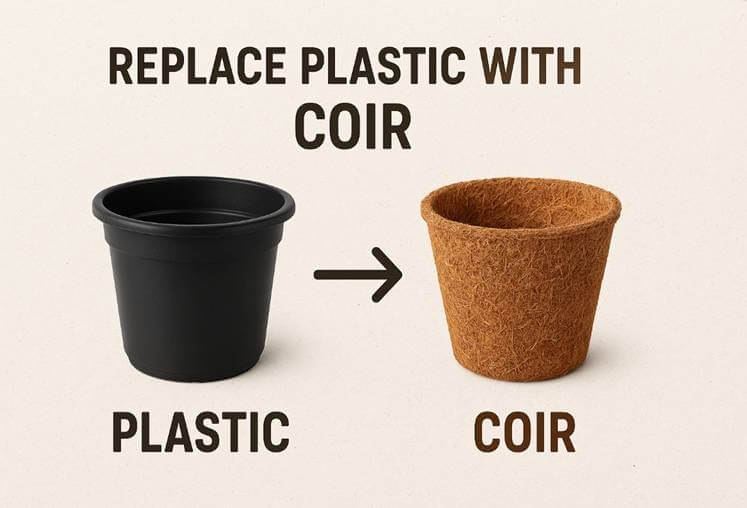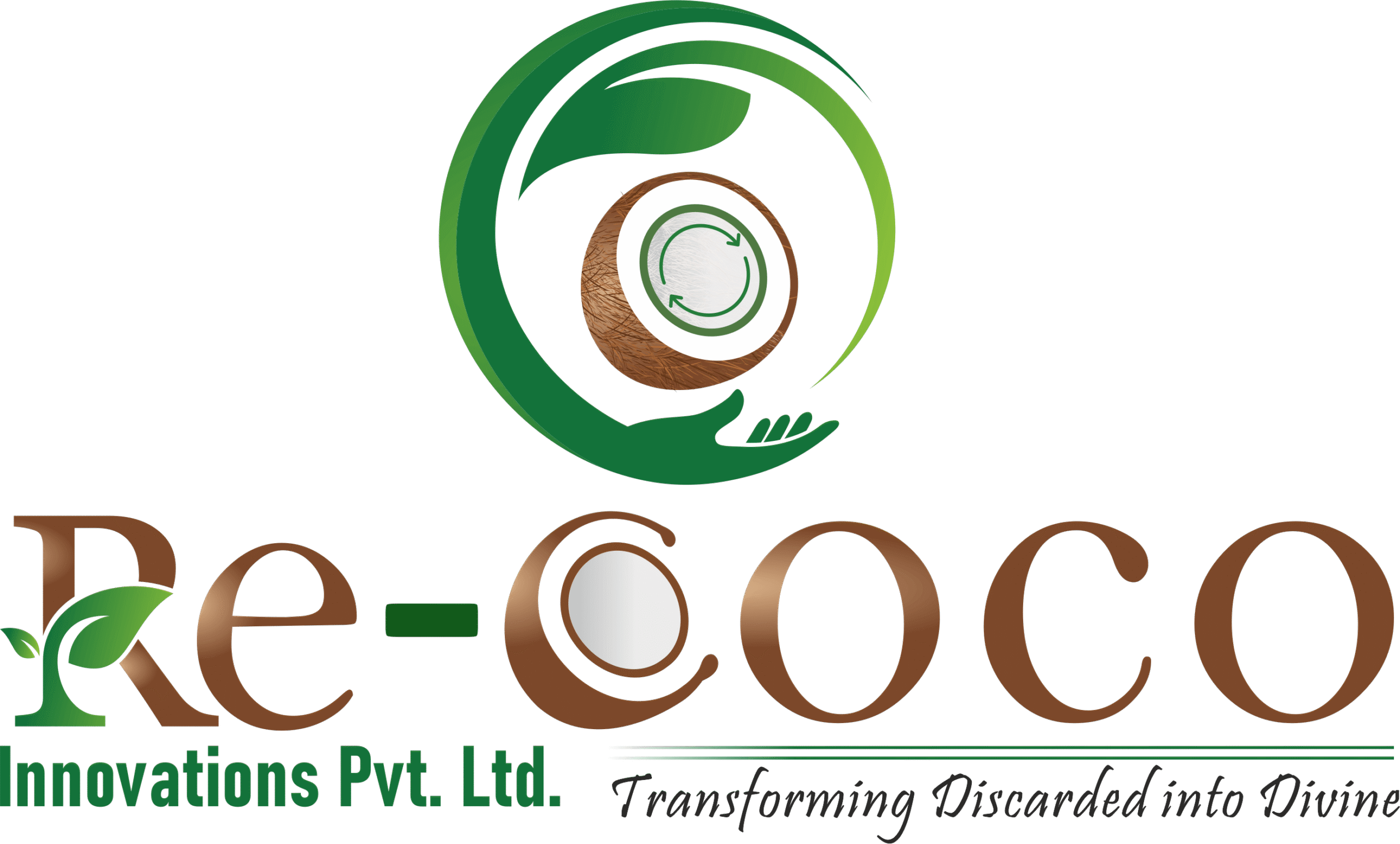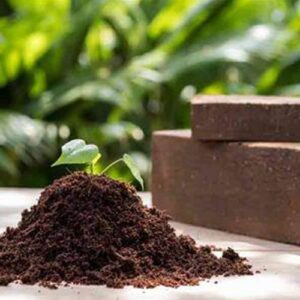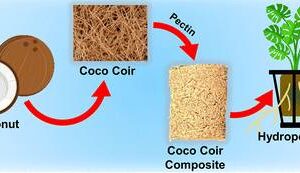Your cart is currently empty.

Every day, millions of coconuts are consumed across India. What happens to the husks? Most are dumped in landfills, clogging drains, or burned, causing pollution.Coir is always a better choice over plastic because it is natural, biodegradable, and eco-friendly. Unlike plastic, which takes hundreds of years to decompose and causes long-lasting pollution, coir is made from coconut husk, a renewable and sustainable resource. Coir products such as pots and planters not only reduce waste but also improve soil health, as they allow roots to breathe and can be planted directly into the ground without harm to the environment. By choosing coir over plastic, we not only support sustainable living but also contribute to reducing plastic pollution and protecting our planet for future generations.
At Re-Coco, we saw opportunity in this problem.
The Plastic Problem
- India generates 3.4 million tonnes of plastic waste annually.
- Most single-use plastics (pots, scrubbers, mats) end up in oceans and soil.
Coconut Husk as a Solution
Instead of burning or dumping husks, we convert them into:
- Re-Coco Nest (biodegradable pots) replacing plastic nursery pots.
- Re-Coco Scruber (kitchen scrubber) replacing plastic sponges.
- Re-Coco Shield & Bed (mulch & microgreen mats) replacing synthetic mats.
- Re-Coco Rest (eco fillers) replacing foam & polyester.
The Circular Impact
Coconut husks → Re-Coco Products → Back to Soil → New Life.
This is not recycling. This is waste becoming wealth.
Every Re-Coco product you buy is not a cost — it’s an investment in solving India’s plastic problem.


